Marine biology, the fascinating study of life in the oceans, has significantly progressed, thanks to the work of many prominent scientists. Their unending curiosity and hard work have solved many ocean mysteries, expanding our knowledge of life under the sea.
Key Takeaways:
- Marine biology is a critical field that studies the vast diversity of life in the oceans, from plankton to whales.
- Marine biologists are crucial to conservation. They gather essential data to protect marine areas, support sustainable practices, and teach us why oceans are vital for Earth’s life.
- Well-known marine biologists like Jacques Cousteau, Rachel Carson, and Sylvia Earle have deepened our ocean understanding. They’ve also worked hard to protect the sea by researching, exploring, and making more people aware of its value.
This article highlights some of the most famous marine biologists whose groundbreaking work has enhanced our understanding of marine ecosystems and underscored the critical importance of conserving these diverse and complex habitats.
Marine Biology As A Field
Marine biology covers a broad spectrum of research, from plankton’s microscopic world to whales’ majestic migrations. But why are marine biologists important in this field?
A 2011 study published in Science estimated that over 90% of marine species still need to be described!
This amazing fact shows how much there is to discover in the ocean. Marine biologists are important because they are dedicated to studying this huge and complicated world. They explore the ocean using tools like scuba diving, submersibles, remote-operated vehicles, and advanced genetic analysis.
Marine biologists have greatly helped in understanding how aquatic life is interconnected.
Take coral reefs, for example. These vibrant underwater communities support 25% of all marine species despite covering only a tiny fraction of the ocean floor.
Marine biologists have documented the complex relationships between corals, algae, fish, and countless other organisms that comprise a reef ecosystem. Their research reveals how these creatures rely on each other for survival, forming a delicate balance threatened by climate change and pollution.
Here’s a powerful quote by the renowned marine biologist and conservationist Sylvia Earle that beautifully captures the essence of their work:
“The health of the ocean is the health of the planet. If the ocean dies, we die.”
Here’s a timeline illustrating the development of marine biology, highlighting critical technological advancements.
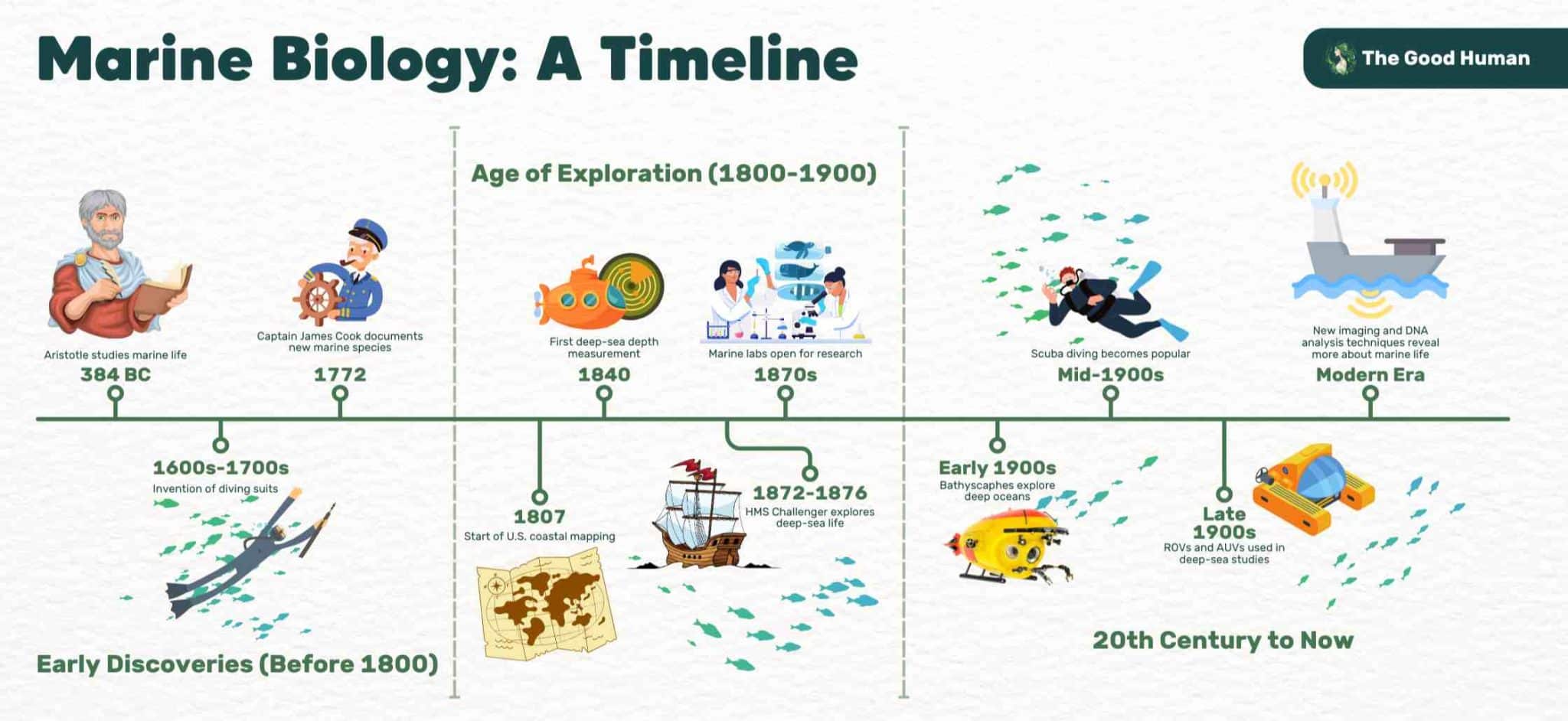
The Pioneers of Marine Biology
These early scientists laid the groundwork for modern marine biology, paving the way for groundbreaking discoveries and igniting a passion for ocean conservation.
Charles Darwin
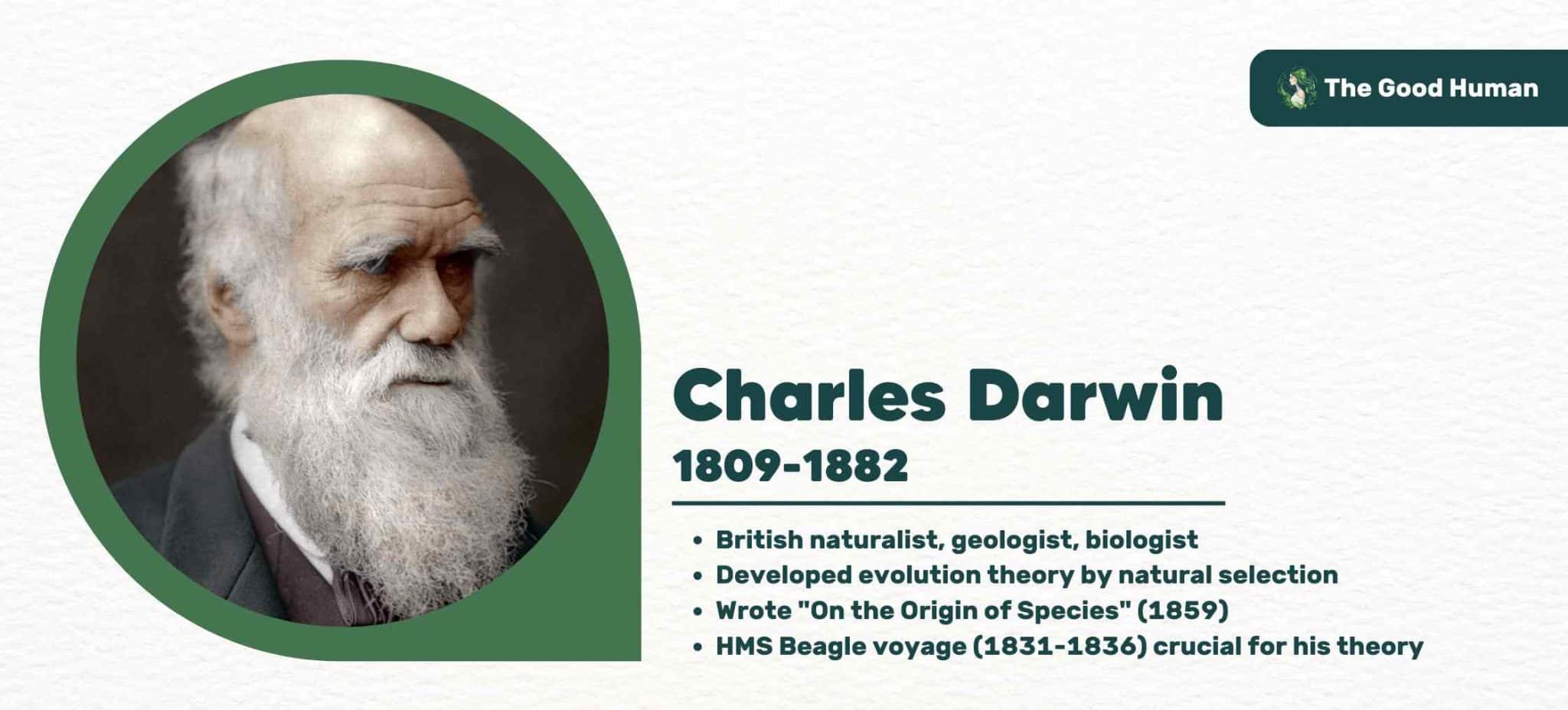
It is not the strongest of the species that survives, nor the most intelligent that survives. It is the one that is the most adaptable to change. ~ Charles Darwin
Charles Darwin is well known as the man behind the theory of evolution. When we think of his work, we typically connect him to apes, but he was, in fact, an early marine biologist.
Charles Darwin’s journey on the HMS Beagle from 1831 to 1836 was groundbreaking for science. His study of marine life, especially from the Galapagos Islands, was crucial to his evolution theory.
Darwin’s meticulous studies of marine iguanas, finches, and other unique species from the Galapagos archipelago revealed the remarkable life adaptations on different islands. He laid the groundwork for understanding the interconnectedness of all living things, including those in the ocean.
Rachel Carson
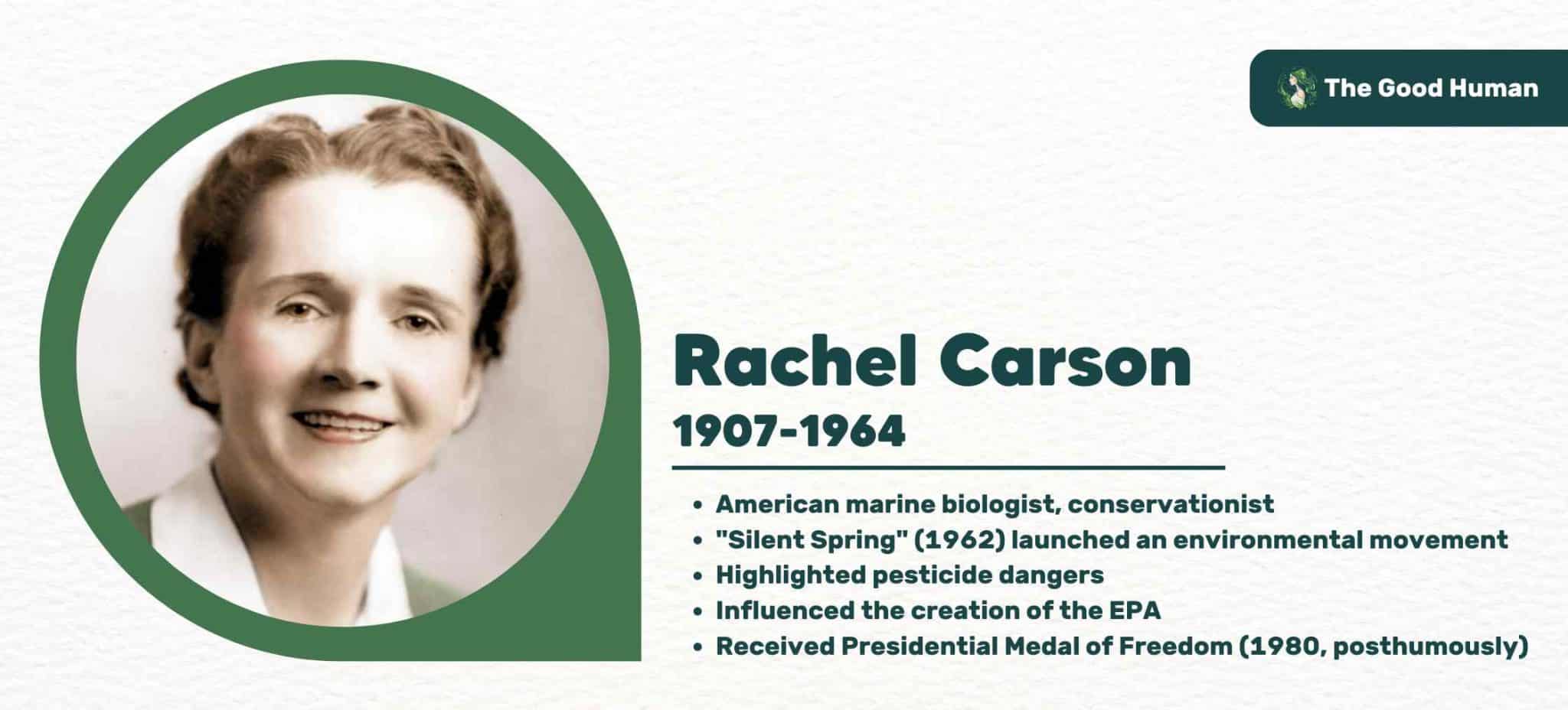
“To stand at the edge of the sea, to sense the ebb and flow of the tides, to feel the breath of a mist moving over a great salt marsh, to watch the flight of shore birds that have swept up and down the surf lines of the continents for untold thousands of years, to see the running of the old eels and the young shad to the sea, is to have knowledge of things that are as nearly eternal as any earthly life can be.” ~ Rachel Carson
Rachel Carson was an American environmentalist famous for her eye-opening books, including Silent Spring, The Edge of The Sea and Under The Sea. These works of literature helped teach the world about the dark future ahead for the planet if changes were not made. As a result, the early environmental movement is largely credited to her.
Rachel’s career began by submitting articles to local newspapers while she studied for her master’s degree in zoology. She showed a real passion for marine biology, and her findings fuelled her work on conservation.
Rachel became an aquatic biologist in the U.S. Bureau of Fisheries, where she analyzed and reported on fish populations. Her reports were groundbreaking, and she eventually made waves in publishing houses that took on her environmental literature.
Rachel is said to have been a catalyst for the formation of the U.S. Environmental Protection Agency. Her work eventually moved on to other areas, especially the use of pesticides. Following her death, Jimmy Carter awarded her the Presidential Medal of Freedom.
Jacques-Yves Cousteau
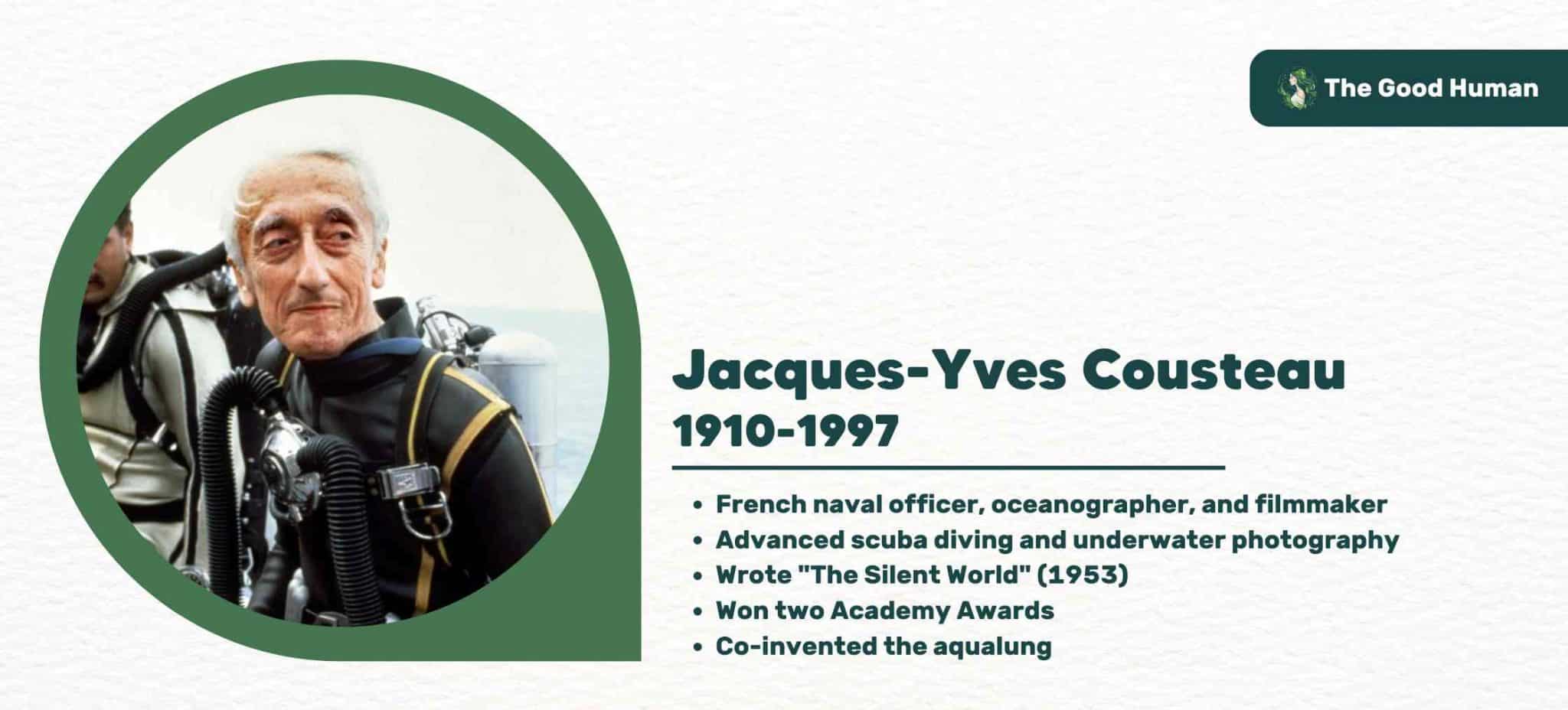
The sea, the great unifier, is man’s only hope. Now, as never before, the old phrase has a literal meaning: we are all in the same boat. ~ Jacques-Yves Cousteau
Jacques Cousteau, a French marine biologist and conservationist, was deeply interested in aquatic life. He also worked as a Naval officer, explorer, filmmaker, scientist, photographer, and author, but called himself an oceanographic technician.
He used his talents in storytelling to bring his marine research to life in numerous books and films. His most famous work is The Silent World, a movie based on his book of the same name. Although almost unheard of in documentaries, it won a Palme d’Or at the Cannes Film Festival in 1956,
Jacques also played a part in the creation of the “Aqua-Lung.” A first of its kind, it’s a form of open-circuit scuba diving equipment.
He founded the French Oceanographic Campaigns (FOC) in 1950 alongside the Underseas Research Group in France and the French Underseas Research offices.
Modern Contributions and Innovations
The work of early marine biologists inspires today’s scientists and researchers to explore the ocean further. Here is a list of more people influencing current marine biology:
Sylvia Earle
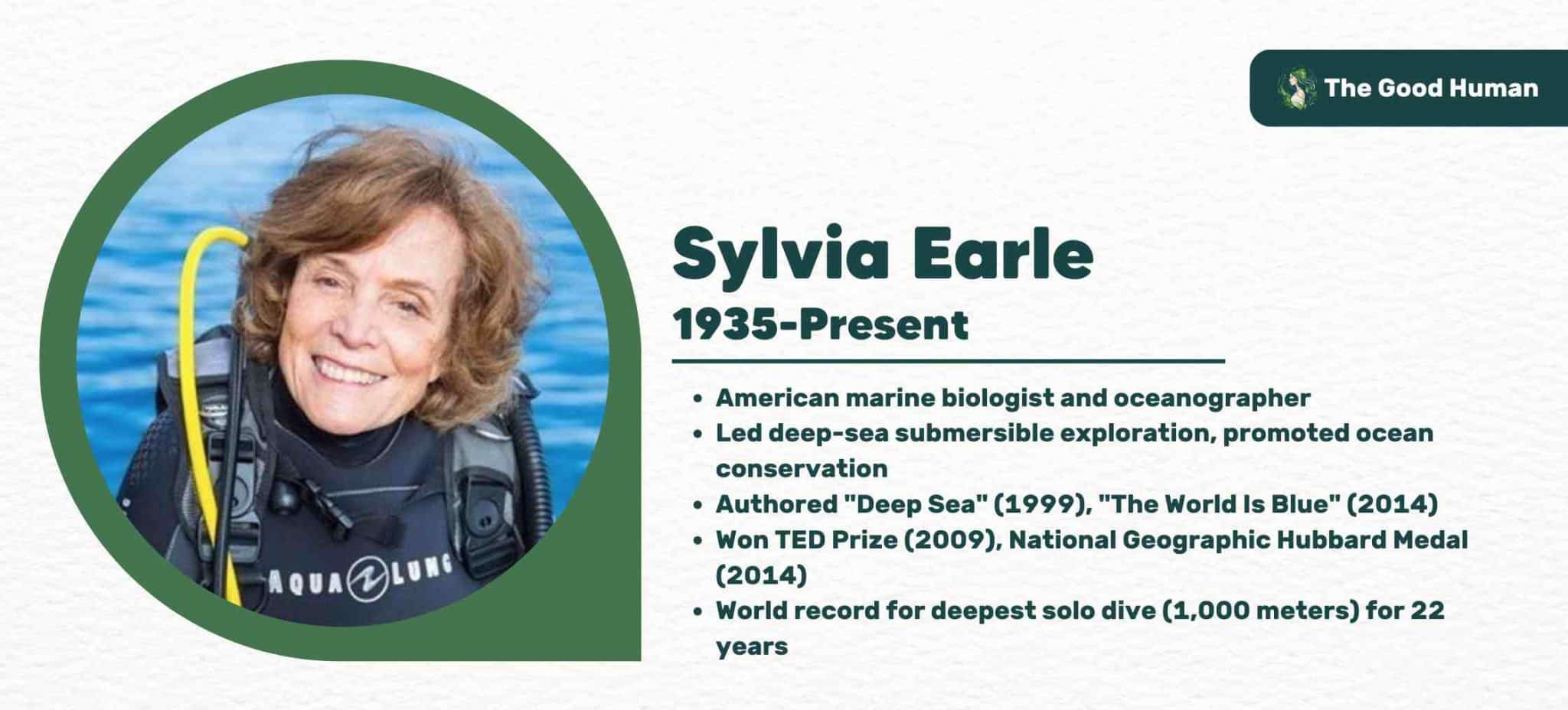
“I wish you would use all means at your disposal – films! expeditions! the web! more! — to ignite public support for a global network of marine protected areas, hope spots large enough to save and restore the ocean, the blue heart of the planet.” ~ Sylvia Earle
Sylvia Earle, known as ‘Her Deepness,’ is an American marine biologist, oceanographer, author, lecturer and National Geographic explorer-in-residence.
She achieved two major honors: becoming the first female chief scientist at the U.S. National Oceanic and Atmospheric Administration and being named Time Magazine’s first Hero for the Planet in 1998.
She had a successful career in marine biology, serving on the National Advisory Committee and co-founding Deep Ocean Engineering, where she helped create the Deep Rover submarine. Sylvia also founded the Sustainable Seas Expeditions and marine conservation companies worldwide.
Hans Hass
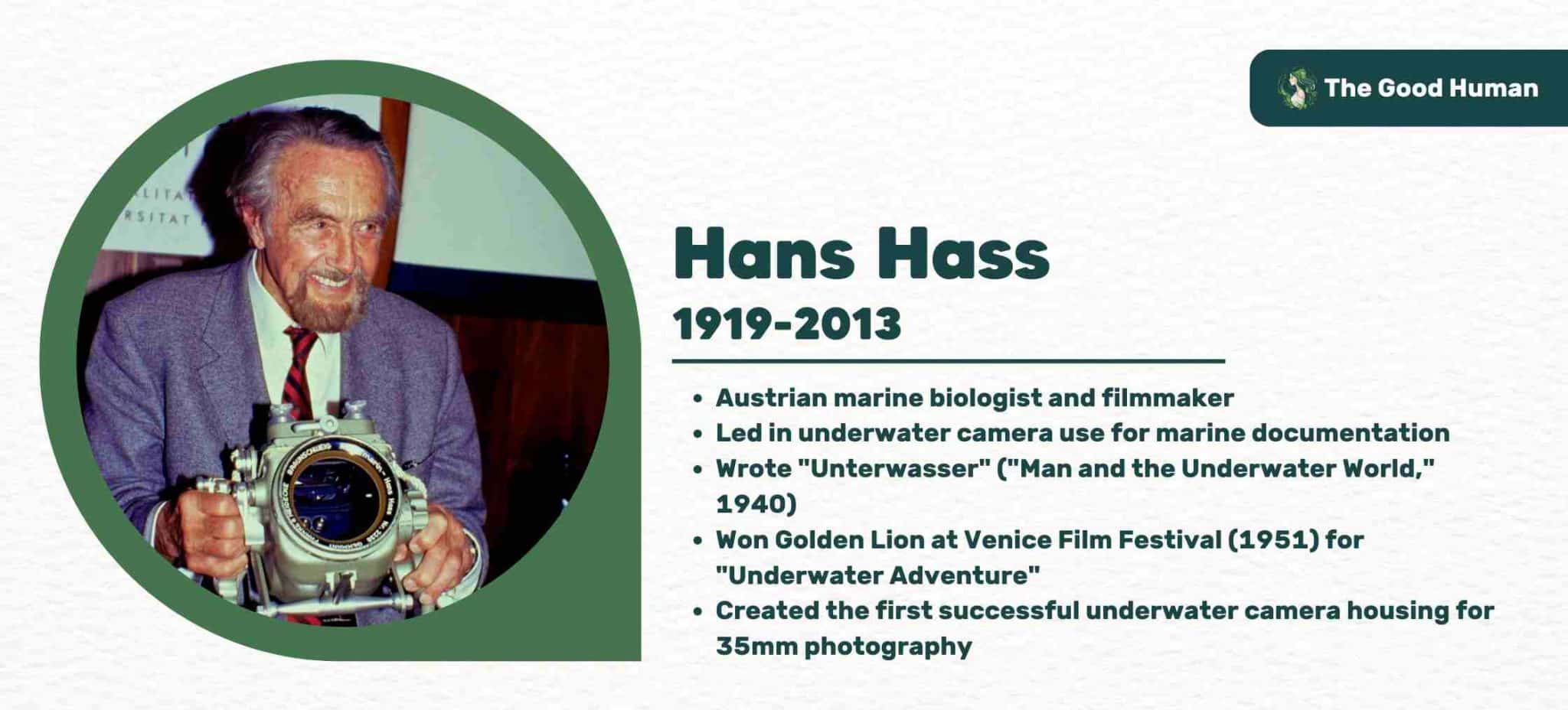
“The Energon Theory“ is the result of decades of intensive research and focuses on the energetic basis of life. After four billion years of evolution, mankind is certainly not the climax of this process. Are technology, economy, culture, etc. really something fundamentally different from animals and plants? It seems that there are identical laws underlying all forms of life including the cultural level of human life. ~ Hans Hass
Hans Hass was a highly respected Austrian marine biologist renowned in this area for numerous reasons.
He redeveloped Cousteau’s aqua-lung, including a ‘rebreather’ that enabled the user to inhale exhaled breath by recycling the air. Hass and his team developed and researched the rebreather for eleven years, perfecting it for use by other underwater professionals.
He was also one of the first to use an underwater camera to capture aquatic life for the benefit of documentaries and photographic books.
Following his detailed research on the behavior of aquatic life, Hass developed his well-known energon theory. He proposed that behaviors of humans, animals, and plants all originate from the same roots. By doing this, he sought to merge marine biology with behavioral and management science into one field.
Hass received many distinctions for his work in marine biology. He has an IADS Lifetime Achievement Award (International Association of Diving Schools) and the Platinum Romy for Lifetime Achievement (2012). Even a cone snail found in the Philippines (2012) was named after him (Protoconus hanshassi).
Eugenie Clark
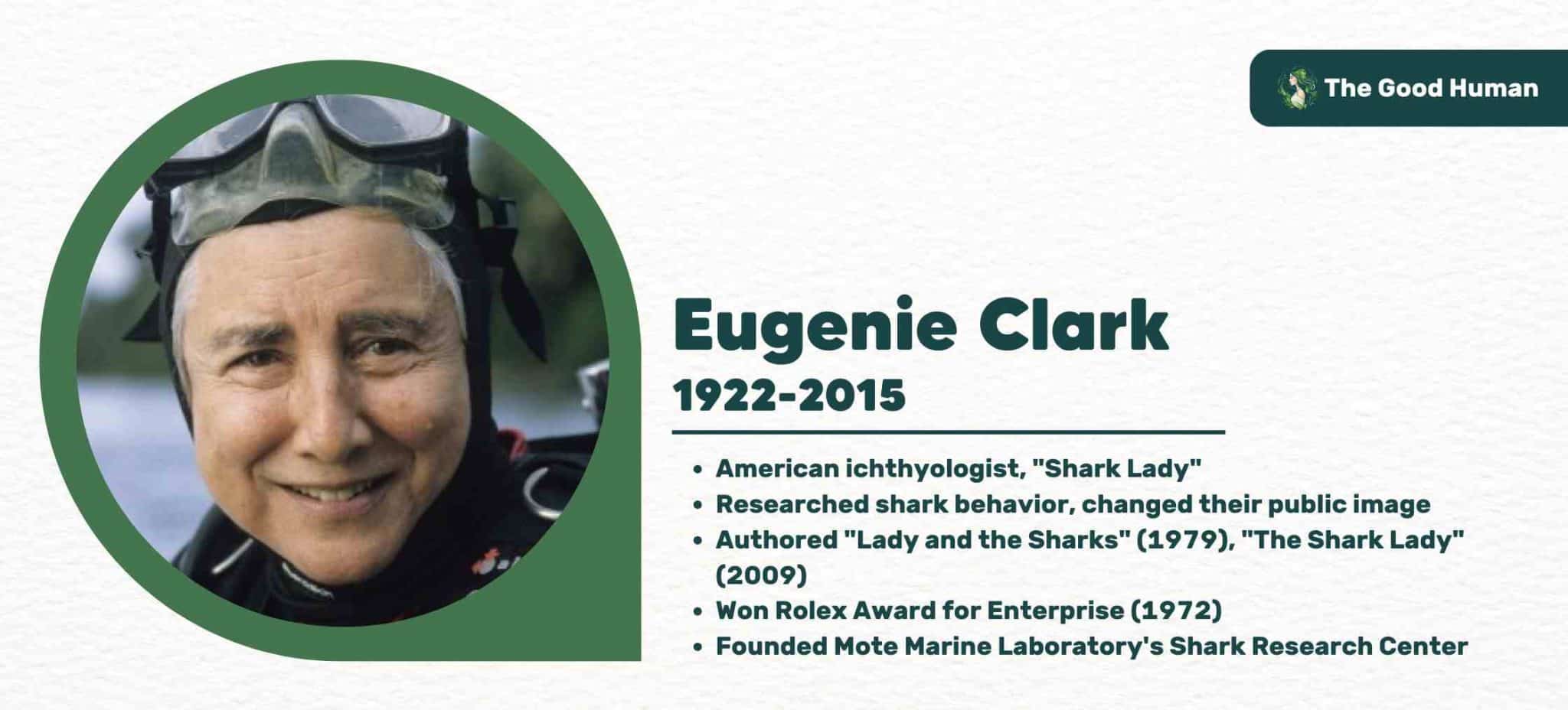
“Not many appreciate the ultimate power and potential usefulness of basic knowledge accumulated by obscure, unseen investigators who, in a lifetime of intensive study, may never see any practical use for their findings but who go on seeking answers to the unknown without thought of financial or practical gain.” ~ Eugenie Clark
Eugenie Clark was a world-class American ichthyologist (or scientist of fish) and one of the most famous marine biologists often described as “The Shark Lady.” Her main research focused on poisonous fish and sharks, subjects that have fascinated her since childhood.
Eugenie was one of the pioneers in using scuba gear for underwater research, completing over 70 deep-sea dives in submersibles. Remarkably, she continued this work into her nineties, even after being diagnosed with lung cancer.
She gave lectures worldwide at over 60 colleges, focusing on fish behavior and ecology. Eugenie also had many shark diving experiences over 40 years. Interestingly, her only injury came on land when a mounted tiger shark jaw fell on her from the passenger seat as she was driving to a lecture.
Eugenie shared her findings through reports, books, and TV shows. Her notable book, “Lady With a Spear,” earned her recognition. In 1994, the American Society of Oceanographers awarded her the Medal of Excellence, and several fish species were named after her.
She worked hard to change how people see sharks, which is highlighted by her National Geographic story, “Sharks: Magnificent and Misunderstood.” Eugenie also found a shark repellent in Moses’ sole fish secretion.
Leanne Armand
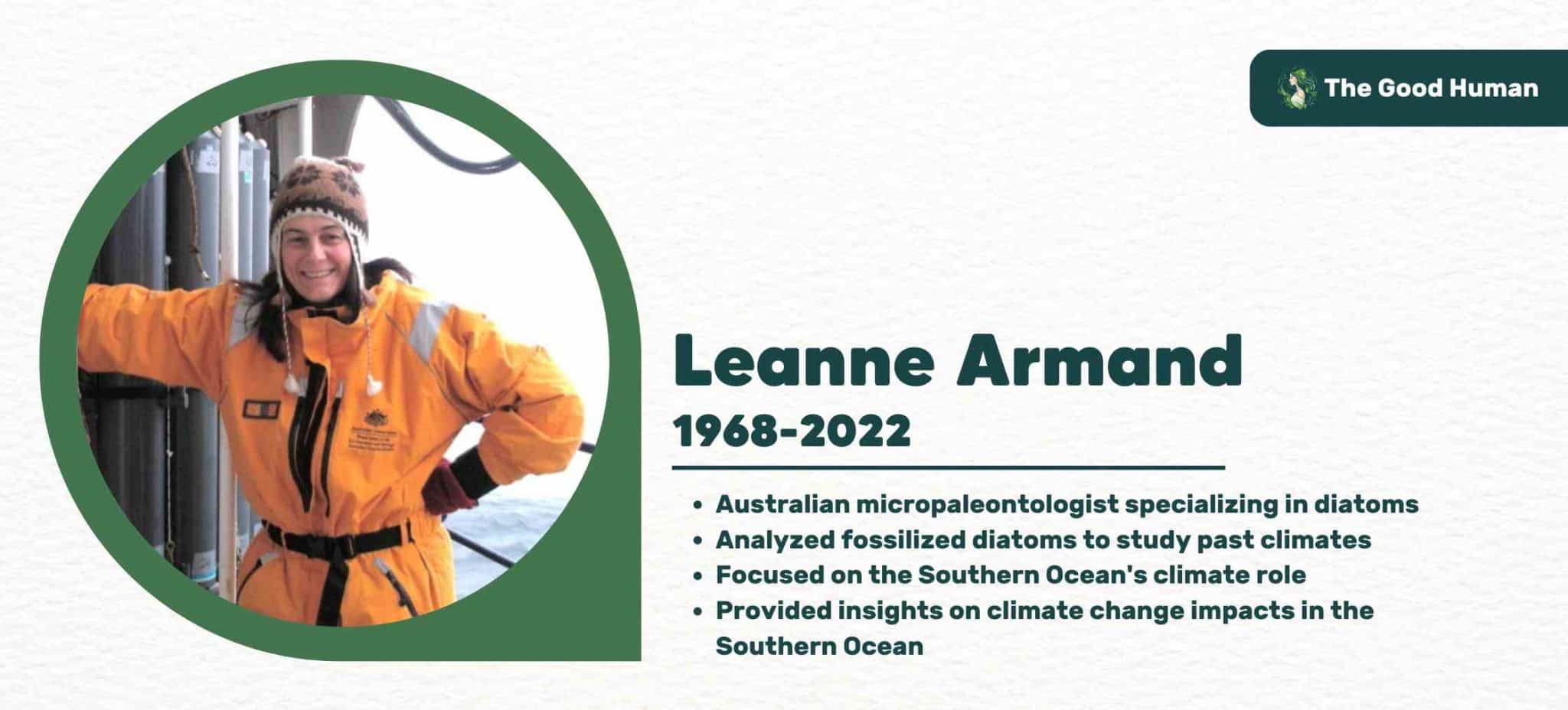
“The Southern Ocean is a sentinel of change. Understanding its past variability is crucial for predicting its future response to a warming climate.” ~ Leanne Armand
Leanne Armand is an Australian marine scientist specializing in Southern Ocean dynamics and sea ice.
Dr. Armand specializes in diatoms, tiny single-celled plants in the ocean that are crucial for the food chain in the Southern Ocean. Her detailed study of ancient diatoms in ocean floor sediments gives us special insights into historical climate changes.
Dr. Armand was not only focused on research but also deeply committed to ocean conservation. She worked hard to inform the public about the dangers threatening the Southern Ocean. Her studies revealed the past and helped predict how climate change might affect this vital area in the future.
Emerging Voices in Marine Biology
The future of marine biology is bright, fueled by the passion and dedication of the next generation of scientists. These emerging voices bring fresh perspectives, innovative research methods, and a deep commitment to ocean conservation to the forefront of the field.
Ayana Elizabeth Johnson
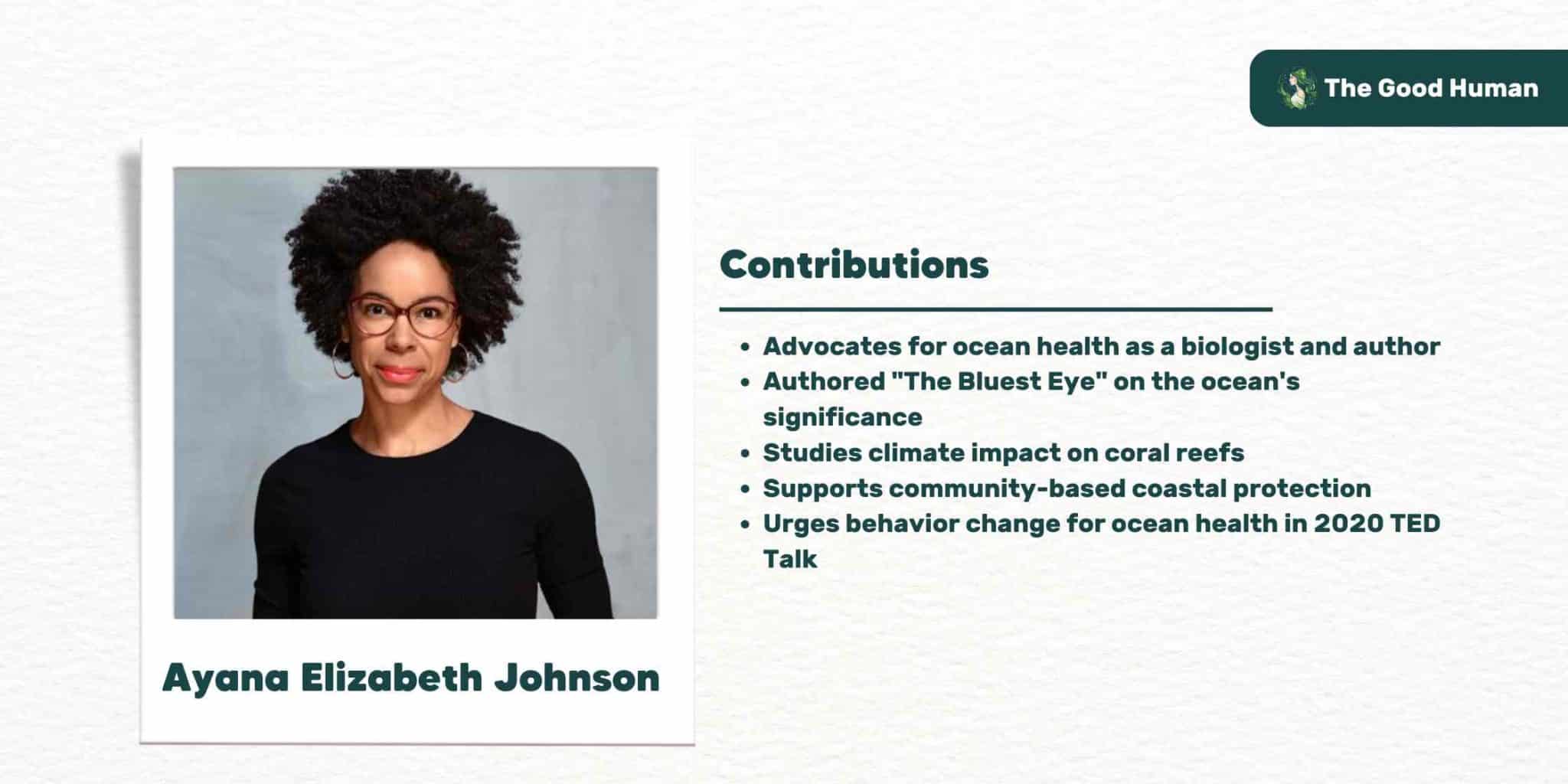
Dr. Ayana Elizabeth Johnson is a key advocate for the ocean’s health. As a marine biologist, policy expert, and acclaimed author, her work emphasizes the link between human wellness and oceanic health.
Her 2019 book, “The Bluest Eye: A Journey to Heal Our Oceans and Ourselves,” combines her journey with scientific knowledge, encouraging people to see the ocean as essential to Earth’s life support.
Dr. Johnson studies how climate change affects marine ecosystems, especially coral reefs. She promotes solutions involving communities and supports efforts to empower coastal areas to preserve their aquatic habitats.
In her 2020 TED Talk, “How to Save Our Oceans: Start by Fixing Ourselves,” she argues for a change in human behavior and a deeper appreciation for the ocean to ensure its health in the future.
Octavio Aburto Oropeza
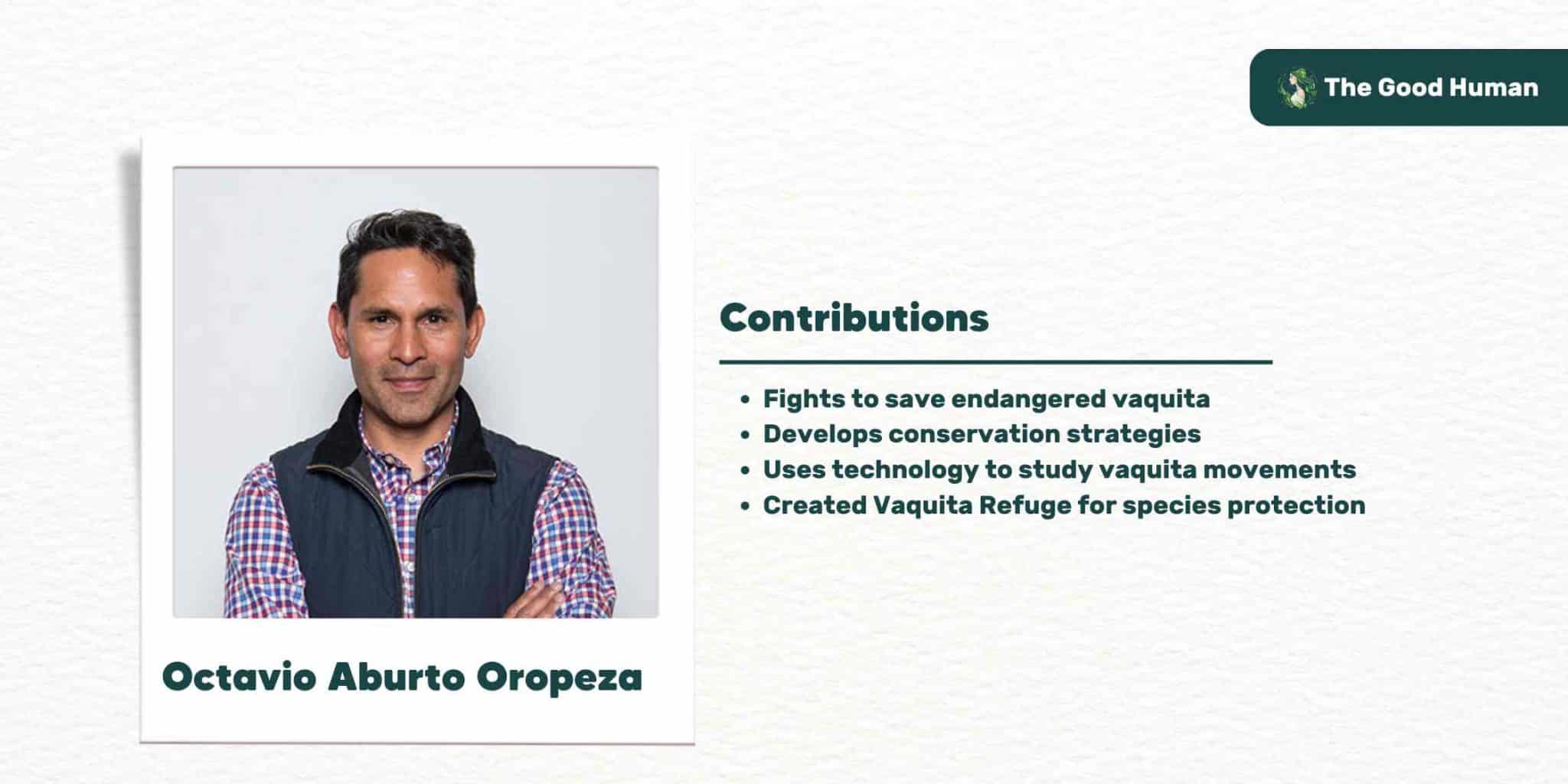
“We are fighting for the vaquita, but ultimately, we are fighting for the future of our oceans.”
Octavio Aburto Oropeza is a Mexican marine mammal biologist leading the fight to save the critically endangered vaquita porpoise.
The vaquita, found only in the Gulf of California, faces extinction because of illegal gillnets set for totoaba fish. Dr. Aburto Oropeza is focused on saving them by creating new conservation methods. Working with locals and officials, she aims to safeguard the vaquitas.
Her research maps vaquita movements through sound monitoring and satellite tags, pinpointing where they’re most threatened by illegal fishing. Dr. Aburto Oropeza’s unwavering dedication led to the creation of the Vaquita Refuge, a protected marine area crucial for the survival of this critically endangered species.
The Role of Marine Biologists in Conservation
The ocean, vast and teeming with life, is also vulnerable. Climate change, pollution, and destructive fishing practices threaten marine life and ecosystems.
Marine biologists are crucial in protecting the ocean. They serve as observers, providing essential data for conservation. Their detailed studies reveal how marine life interacts within ecosystems, showing how these systems are crucial for a healthy Earth.They use their findings to guide conservation plans and push for ocean protection policies. Their work supports the creation of marine protected areas and regulations on fishing and pollution.
Marine biologists make science accessible, educating the public about ocean dangers and encouraging action. They collaborate with policymakers and organizations to craft and apply conservation measures.Their role goes beyond research; marine biologists aim to preserve the ocean’s health for future generations. They are the educators and advocates linking science with policy and action.
How To Become A Marine Biologist
If you’re passionate about the ocean and possess a solid scientific curiosity, then a career in marine biology could be the perfect path for you. There’s no fixed path to becoming a marine biologist, but a solid background in the natural sciences is crucial.
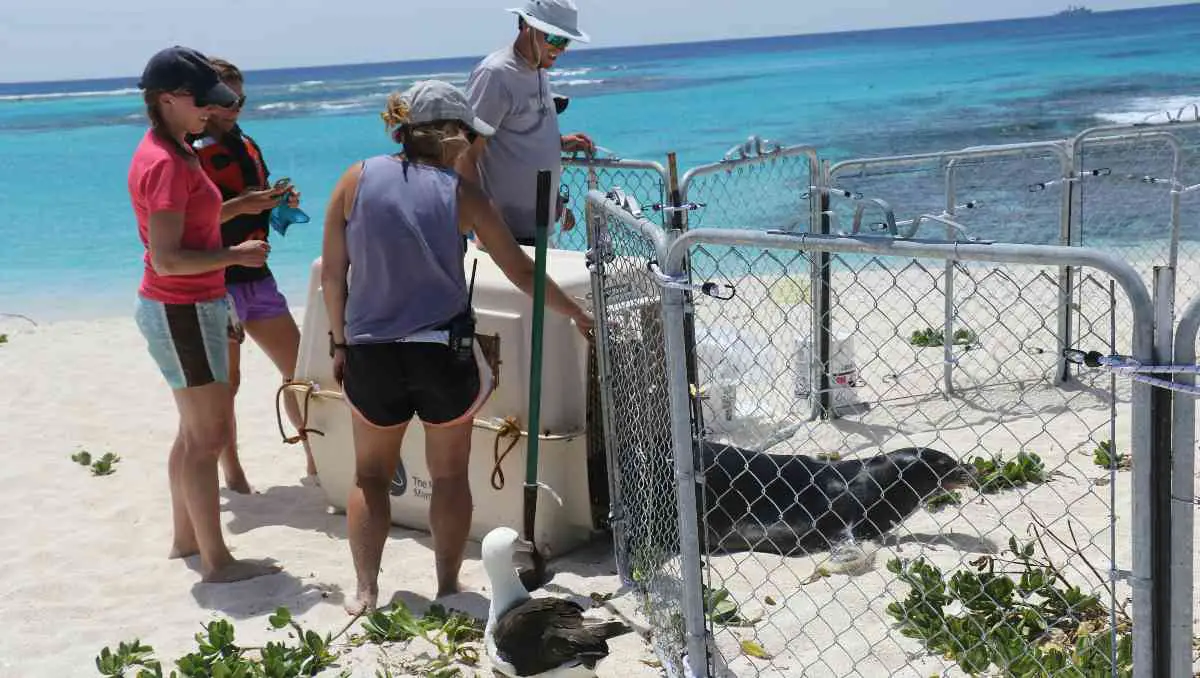
Most marine biologists start with a Bachelor’s degree in Marine Biology, Marine Science, or a related field such as Biology, Ecology, or Oceanography. These programs cover various aspects of marine ecosystems, including marine biology, oceanography, chemistry, physics, and ecology.
Coursework may include subjects like:
- Marine organism diversity
- Physiology
- Behavior
- Oceanography
- Fisheries science
- Conservation biology
Many universities offer programs with a strong emphasis on field studies, allowing students to gain practical experience through research projects, internships, or volunteer work at marine laboratories or research stations. These hands-on experiences are invaluable for developing essential research skills and solidifying your passion for the field.
For those seeking a deeper dive into specific areas of marine biology, pursuing a Master’s degree or even a Ph.D. can open doors to specialized research positions and academic careers.
Beyond a solid academic background, success in marine biology requires a diverse skill set. Here are some crucial qualities needed for the job:
- Strong foundation in science
- Analytical and problem-solving skills
- Fieldwork experience
- Excellent communication skills
- Strong research skills
- Computer literacy
- Physical fitness
- Adaptability and resourcefulness
Fields of Marine Biology
The field of marine biology offers a diverse range of career paths. Here are a few exciting areas of specialization:
- Marine Conservation: Work towards protecting marine ecosystems and endangered species by researching, developing conservation strategies, and advocating for policy change.
- Fisheries Science: Contribute to the sustainable management of fish populations by studying fish stocks, analyzing data, and advising on fishing regulations.
- Marine Ecology: Investigate the interactions between marine organisms and their environment, focusing on competition, predation, and symbiotic relationships.
- Biological Oceanography: Explore the physical and chemical properties of the ocean and their influence on marine life, including studying currents, salinity, and nutrient cycles.
- Marine Biotechnology: Apply your knowledge of marine organisms to develop new products and technologies, such as pharmaceuticals, biofuels, or bioremediation solutions.
Marine biologists can find employment opportunities in various settings, including:
- Research institutions and universities
- Government agencies and environmental protection organizations
- Non-profit organizations focused on marine conservation
- Private companies involved in aquaculture, fisheries, or marine biotechnology
- Aquariums and marine research centers
Final Thoughts
Marine biologists play a vital role in understanding and conserving the intricate balance of life in our oceans. Their dedication shines through in their research, revealing the ocean’s importance in sustaining life on Earth.
The ocean isn’t merely water; it’s essential for our planet’s well-being. Protecting it isn’t just a scientific duty but a moral imperative. This is where the concept of The Good Human resonates deeply.
By honoring marine biologists’ work and passion, we embrace the essence of goodness – the commitment to safeguarding our environment, nurturing a sense of stewardship for our planet, and securing a bright future for future generations.
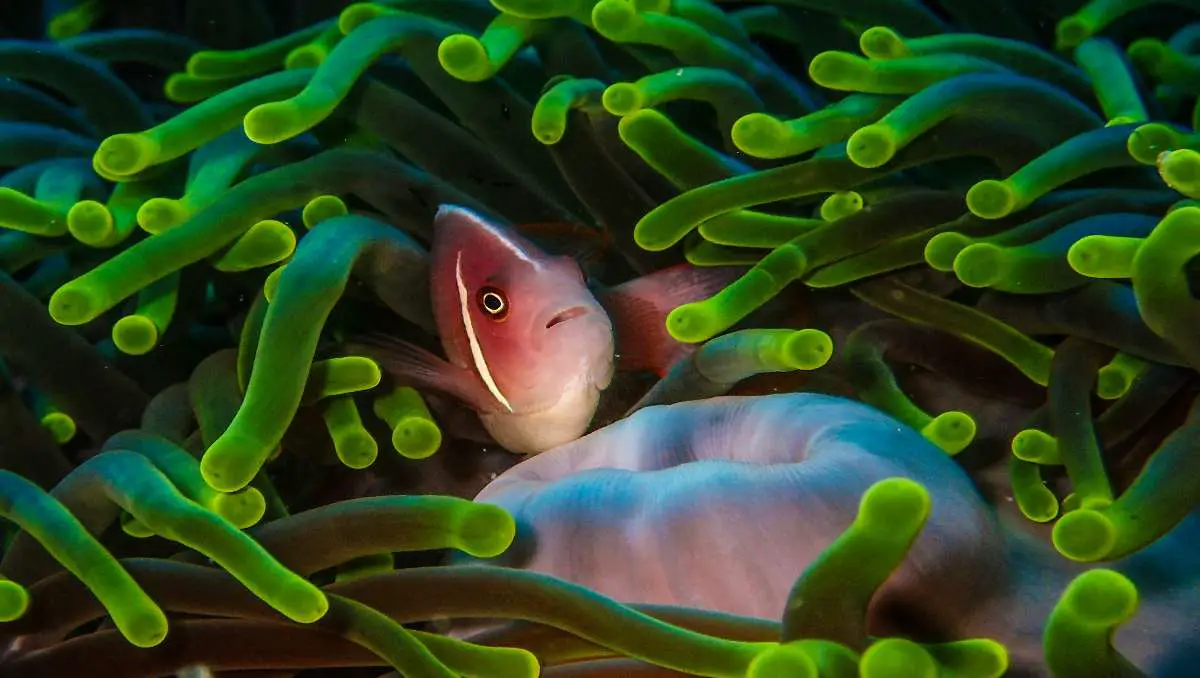
Frequently Asked Questions (FAQs)
Who is the father of marine biology?
The “father of marine biology” is often considered to be Charles Darwin due to his groundbreaking work on the theory of natural selection and his detailed studies of marine organisms during his voyage on the HMS Beagle.
Will marine biologists be needed in the future?
Marine biologists will be increasingly needed as the health of aquatic ecosystems becomes more crucial in the context of climate change, overfishing, and pollution. Their expertise will be essential in addressing these challenges, conserving marine biodiversity, and ensuring the sustainability of our oceans.
What is the main duty of a marine biologist?
The primary duty of a marine biologist is to study the organisms and ecosystems of the ocean, including their behaviors, interactions, and impacts on the environment. They research, analyze data, and apply their findings to protect marine species and habitats.

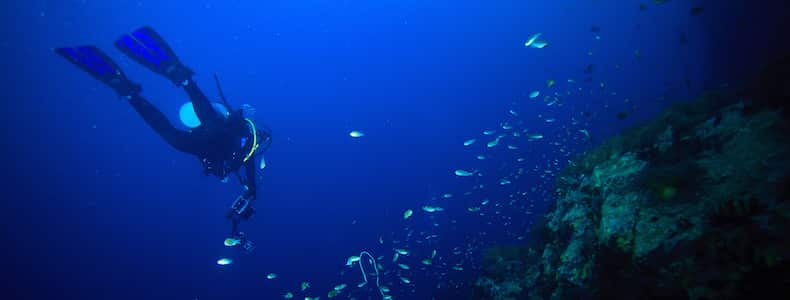




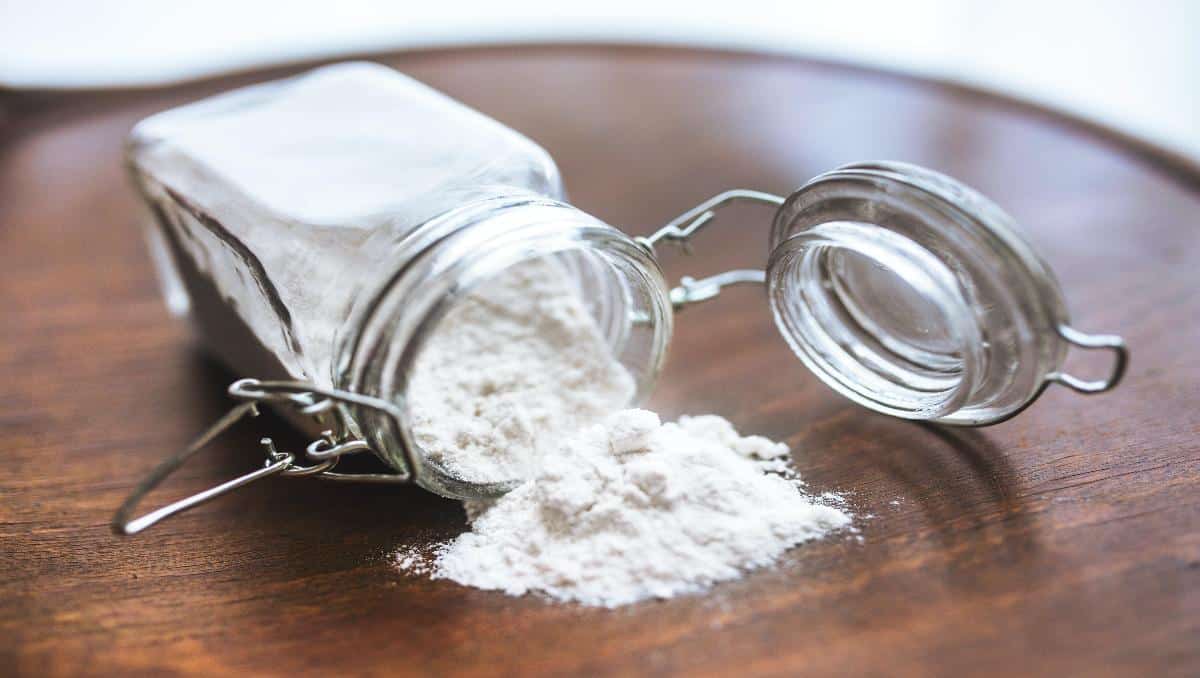

Thanks for compiling this information, I am glad that organizations take note of the sincere work of these people and allowing us to know how we also can be of help. I wish to see Dr. Angel Alcala’s work recognized as well. He has done a lot in my country, the Philippines. He has pioneered the MPA idea that helped delay the death of the Phil. marine life. Honest, self-less work like his do not really get public acknowledgement in this country as we are so impoverished we cannot see beyond our fences.
What about this chick? First megafauna in 130 years. Maybe make it 8? https://www.sciencealert.com/this-strange-creature-is-the-first-sunfish-species-to-be-discovered-in-130-years
What about Jgesdbg Loyfed?
is lgesdbg even a name?
No it do not think so
I’m doing research for when I go to college so I can be able to actually know what marina biology is about and if there was ever a marine biologist that went after somewhat mermaids or the extinction of the megladon a extinct shark and how dee have they went and is it possible for a human to go farther then that?
I don’t think any marine biologist has went after proving the existence of mermaids, because they are considered mythical creatures. And I don’t know what you mean by extinction of Megaladon.
i want too do that be a marine biologist ?. .